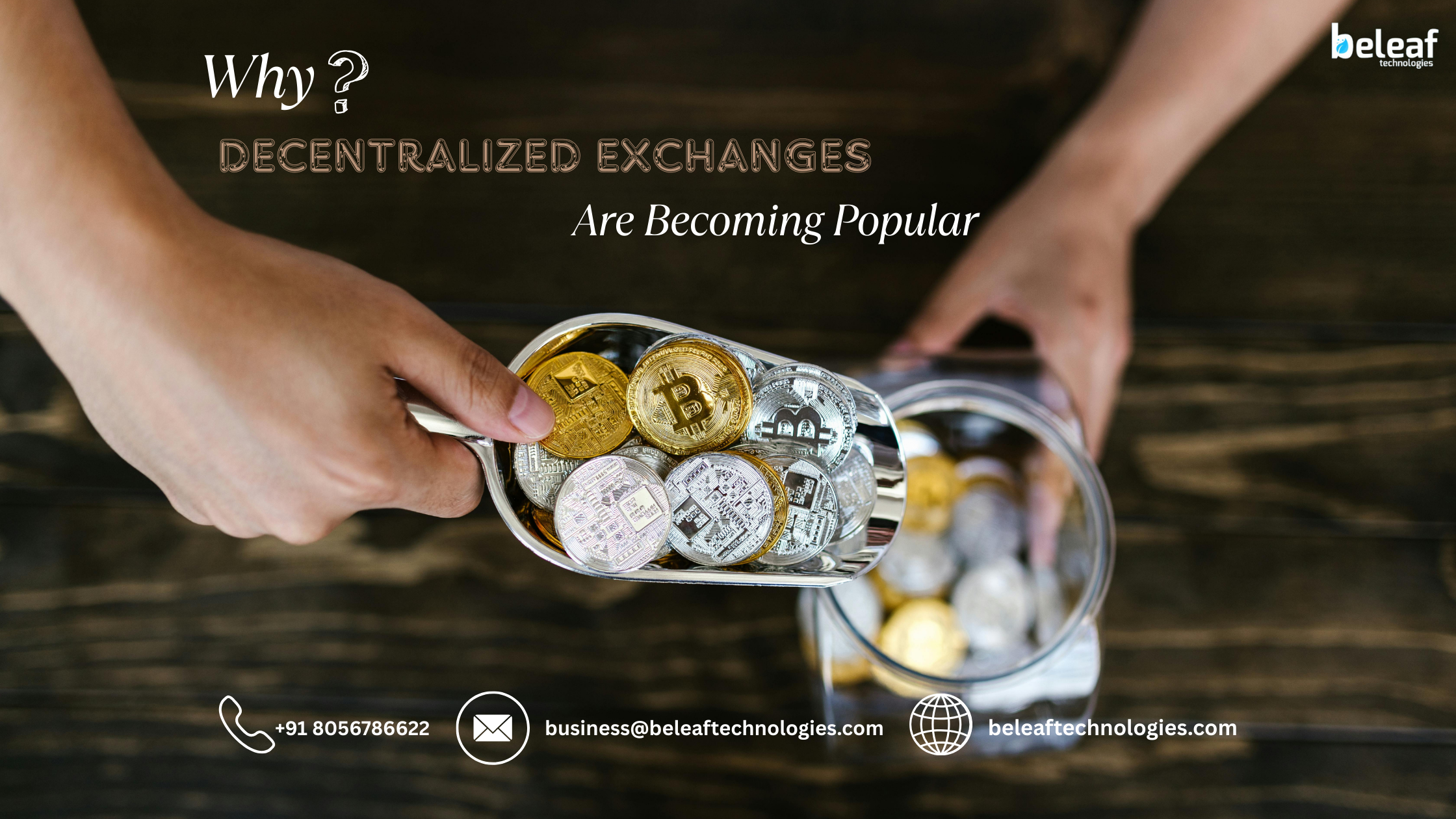Exploring the Shift Toward Trustless, Peer-to-Peer Crypto Trading
1. Understanding the Key Reasons Behind the Shift from Centralized to Decentralized Exchanges
Over the past few years, the crypto ecosystem has seen a major transition from centralized exchanges (CEXs) to decentralized exchanges (DEXs).Despite having user-friendly interfaces and significant liquidity, centralised exchanges are run by a single organisation. This gives them full control over user assets and personal data, creating a point of vulnerability. Decentralised exchanges, on the other hand, use blockchain technology to enable direct transaction between users without the need for a middleman.
The shift is being driven by growing concerns over trust, transparency, and ownership. As users become more aware of privacy issues and hacks in centralized systems, the demand for decentralized platforms continues to rise.
2. How Users, Privacy, and Control Are Fueling the Rise of DEX Platforms
One of the best things about DEXs is the control they provide their users. On a decentralized exchange, users retain custody of their funds through self-managed wallets. There is no need to deposit crypto into the platform itself, which drastically reduces the risk of exchange hacks or asset freezes.
Furthermore, a more private trading environment is promoted by DEXs, which usually require little to no personal information.This is especially important in regions where financial surveillance is high or access to centralized platforms is restricted. The self-sovereignty that DEXs offer being able to control your funds without oversight has become a defining characteristic for many in the blockchain space.
3. A Look into the Growing Trust in Peer-to-Peer Crypto Trading Platforms
Trust has always been a key factor in trading. In centralized systems, that trust is placed in the organization running the platform. Unfortunately, history has shown that such trust can be misplaced—exchange shutdowns, mismanagement, and scams have all led to users losing funds.
This approach is altered by decentralised exchanges, which eliminate the need to have faith in a centralised authority. Instead, transactions are facilitated through smart contracts automated code on the blockchain that executes trades when conditions are met. These smart contracts are often open-source, allowing the community to audit and verify the code. This transparency builds trust through technology, rather than depending on people or institutions.
4. Why More Crypto Traders Are Choosing Decentralized Platforms Over Traditional Ones
With each new development in the blockchain world, traders are gaining more tools to protect and grow their digital assets. Decentralized platforms offer several key advantages:
-
No Custodial Risk: Users hold their own keys and funds.
-
This eliminates the requirement for centralised control and permits ongoing trading.
-
Censorship Resistance: DEXs are harder to shut down or regulate due to their distributed nature.
-
Lower Counterparty Risk: Trades are executed by code, not human intervention.
These factors make decentralized exchanges a more attractive option, particularly for experienced users and those seeking financial freedom outside traditional systems.
5. The Factors That Make Decentralized Exchanges a Preferred Choice in Crypto Trading
Several technical and practical features contribute to the popularity of DEXs:
-
Liquidity Pools: Instead of order books, many DEXs use automated market makers (AMMs) and liquidity pools to match buyers and sellers.This eliminates the requirement for centralised control and permits ongoing trading.
-
Token Availability: DEXs often list a wider variety of tokens, including early-stage or community-driven projects that aren’t available on CEXs.
-
Interoperability: Cross-chain DEXs allow trading of assets from different blockchains, expanding access and flexibility.
-
Lower Fees: Depending on the blockchain and traffic, trading fees on DEXs can be competitive with or lower than those on CEXs.
These features not only attract users but also empower developers and innovators to build new financial tools without permission or centralized gatekeeping.
6. From Control to Security The Features Making DEXs More Popular Than Ever
Security is a major concern in the crypto world, and decentralized exchanges offer important benefits in this area. By eliminating the need to store user funds on a centralized server, DEXs significantly reduce the risk of major hacks. Each trade is executed wallet-to-wallet, with smart contracts ensuring the process is automatic and tamper-proof.
Additionally, a lot of DEXs are open-source, which allows anybody to view the code.This transparency helps identify vulnerabilities before they can be exploited. While smart contract bugs remain a potential risk, the decentralized nature of these platforms makes them less of a target compared to large, centralized vaults of user assets.
Final Thoughts
Decentralized exchange development is shaping the future of digital trading. As users seek greater control, privacy, and security, DEXs are rising to meet those needs. While challenges like user experience, scalability, and regulatory concerns remain, the benefits of decentralization are clear. With continuous innovation in blockchain technology, decentralized exchanges are well-positioned to become the standard in crypto trading.


